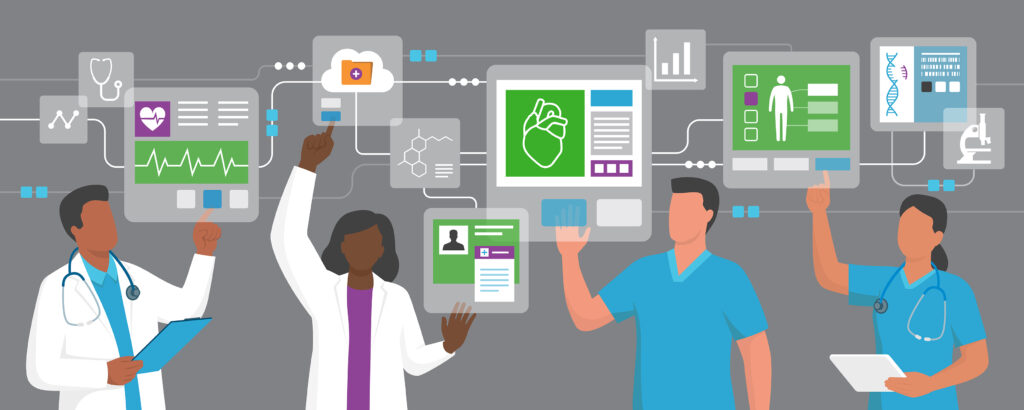Healthcare operational technology (OT) is the hardware and software systems used to control, monitor, and manage the physical devices and processes that enable hospitals and clinics to deliver patient care. From medical device management systems and inventory management to HVAC and other building technologies, properly functioning OT is crucial for modern healthcare as it helps to enable patient safety and service efficiencies. With the increased reliance on Internet-of-Things (IoT) and Internet-of-Medical-Things (IoMT) and the integrations with the systems that support patient care, it’s essential to emphasize certain functions to optimize the benefits of OT.
Prioritize Cybersecurity
Cybercriminals are keen to target healthcare companies because they store troves of personal identifiable information (PII) and financial records. Data breaches in healthcare hit an all-time high in 2023, as over 133 million healthcare records were stolen or exposed.1 Implementing robust cybersecurity measures to safeguard OT systems can help organizations combat this growing trend that can jeopardize patient information and quality of care. Ways to improve security posture include regularly updating software, executing data backup and management, deploying firewalls, securing APIs for IoT and IoMT devices, and constructing business continuity and disaster recovery (BC/DR) plans. Additionally, regular cybersecurity training for staff can help ensure that they’re aware of potential threats (e.g., phishing and social engineering) and know the most effective tactics for preventing them.
Ensure Compliance
As one of the most regulated industries, healthcare companies must regularly demonstrate compliance with stringent sets of data privacy and security regulations, such as the United States Healthcare Insurance Portability and Accountability Act (HIPAA). Any patient data passing through OT systems needs to comply with these regulations. Failure to do so could result in reputational damage, lawsuits, and fines that can exceed $2 million.2 One way to avoid these drawbacks is to invest in a compliance management solution to track and manage compliance across different departments and all of their associated OT. This solution can help identify potential compliance risks, maintain comprehensive documentation for audits, and operationalize possible new procedures to ensure adherence to any updated regulations.
Analyze Data
Healthcare OT generates enormous volumes of data. Thorough analysis of that data can result in improved patient outcomes and operational efficiency and profitability. Organizations may want to leverage advanced analytics tools and AI/ML algorithms to gain insights about patient care and resource utilization from OT data. Hospitals and clinics can also perform predictive analysis based on OT data to better estimate future admission rates, properly allocate staff, and reduce patient wait times. However, it’s crucial to weigh concerns about data privacy and governance when analyzing OT data, ensuring patient data is anonymized and secure.
Achieve Interoperability
Running a myriad of OT, healthcare companies strive to ensure these systems can seamlessly communicate and exchange data if they hope to operate efficiently and effectively. One way to encourage interoperability is to use accepted data standards such as Health Level 7 (HL7) and Fast Healthcare Interoperability Resources (FHIR) to facilitate the consistent exchange and interpretation of data across different systems. Also, the use of secure and flexible APIs can significantly enhance interoperability between OT and systems. Enabling patient data to be shared accurately and quickly among various healthcare providers can produce better coordination and efficient care. Interoperability among OT can enhance decision-making, as providers can access comprehensive patient records and real-time data, and thus reduce treatment errors.
When used effectively, healthcare OT can improve patient care and operational efficiency. By focusing on cybersecurity, compliance, data analysis, and interoperability, healthcare organizations can increase the likelihood of optimizing OT investments while maintaining a high standard of care and safety for patients and their data.
- HIPAA Journal, December 2023 Healthcare Data Breach Report, January 2024.
- HIPAA Journal, What are the Penalties for HIPAA Violations?, 2024.
